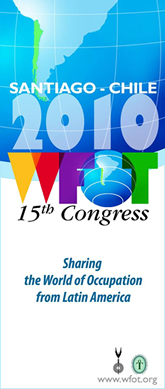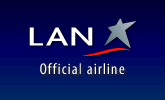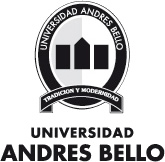CONGRESS THEMES
- Human Rights and Occupational Therapy
Thematic area to reflect on research and intervention strategies for social participation, social responsibility and professional ethics. It considers the construction of spaces for social support, at an individual and collective level, in life situations linked to poverty and social exclusion. This includes spheres of policies and management of public policies, community based rehabilitation, and rehabilitation with a community basis, among others. - Occupational Therapy Practice Development
Aimed at incorporating the experiences, impact and/or usefulness of the models that have been constructed in occupational therapy or in the science of occupation, new evaluation and/or intervention strategies, and experience of countries considering the epidemiological variable. Research in occupational therapy from various epistemological approaches. - Culture and Occupation
Theme aimed at bringing together Occupational Therapy experiences in groups dealing with exclusion, immigration and ethnic groups, discussing issues such as cultural sensitivity, disability, gender and social equality. This theme will favour dialogue between Latin American occupational therapy and that which is practiced in other continents of the world. - Occupational Practice: Past and Future Trends.
The foundation of this theme is the lessons learned and the impact of the historical construction of occupational therapy in Latin America and the world on emerging spheres of practice and research. Novel, creative, and boundary-pushing developments in the field will stimulate dialogue and the critical review of this theme’s content. The implications for future mainstream practice and links to research and education are encouraged. - Quality and Management
This theme generates discussion on guidelines and strategies for public policy within the scope of occupational therapy and for leadership development within the national and international levels of the profession. It will explore management strategies for leaders of professional occupational therapy services within contexts of limited resources and for vulnerable populations which are of the highest priority. - Occupational Therapy Education: The Profession & Discipline
Incorporating evidence, reflections and projections about occupational therapy and occupational science educational experiences, this theme encourages exploration of differences and coincidences, within both a local and a global context. Presentations will promote dialogue about diversity, quality and challenges confronting educational institutions faced with resource limitations, research and accreditation demands as well as quality competitive education. Students and practitioners perspectives relating to career opportunities, cultural mobility, equality and inclusion are sought. - Occupation, Daily Life, Subjectivity and Occupational Therapy
This horizontal theme includes conceptualizations about the profession’s foundation construct of occupation. Sought are critical and comparative perspectives of cultural expressions in novel environments, countries and regions that serve to enlighten participants to alternative views and approaches. The opinions and lived experiences of clients, patients, practitioners, students and academics are sources of stimulation for creating new ways of exploring old issues and alternative strategies to providing greater opportunity to all for full societal participation.






